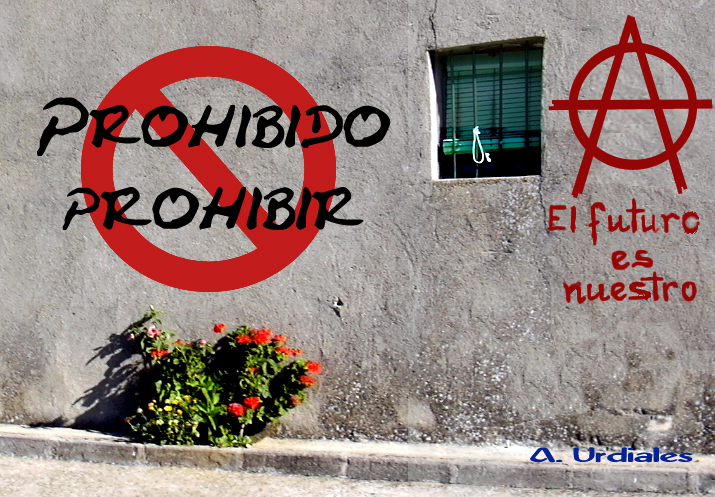Spanish Word of the Day
| December 7th, 2013 at 7:19:44 PM permalink | |
| Pacomartin Member since: Oct 24, 2012 Threads: 1068 Posts: 12569 |
Yes they are related , but "vagrant" also is related to Old Norse "valka" . |
| December 8th, 2013 at 3:00:53 AM permalink | |
| Wizard Administrator Member since: Oct 23, 2012 Threads: 241 Posts: 6108 | Fecha: 8-12-13 Palabra: Gentío Today's SWD means crowd. The assignment for the advanced readers is to confirm to deny a common etymology with tío (uncle). Ejemplo time. Un gentío reúne siempre cuando Ginger se baña en la laguna. = A crows always gathers when Ginger bathes in the lagoon. I'm not sure if I should conjugate reunir in the singular or plural for a crowd. My guess is singular, but I wouldn't lay more than 120 on it. Knowledge is Good -- Emil Faber |
| December 8th, 2013 at 4:04:04 AM permalink | |
| Pacomartin Member since: Oct 24, 2012 Threads: 1068 Posts: 12569 | The word tío is from Latin word "thius". It is unrelated to the suffix "-ío". suffix -ío, a. 1. Forma adjetivos que se refieren frecuentemente a la agricultura o la ganadería. Labrantío, plantío, cabrío, lanío. 2. Forma sustantivos que suelen tener valor colectivo o intensivo. Mujerío, gentío, monjío, poderío. |
| December 8th, 2013 at 6:04:08 PM permalink | |
| Wizard Administrator Member since: Oct 23, 2012 Threads: 241 Posts: 6108 | Fecha: 9-12-13 Palabra: Sofocar Until today, I thought the definition of sofocar was to suffocate. However, I came across this sentence in La Teleraña de Carlota.
I didn't make sense to the story that they were suffocated. Then, I looked up that sentence in the English version and it said, "The children were hot and dirty." Knowledge is Good -- Emil Faber |
| December 9th, 2013 at 9:04:07 AM permalink | |
| Pacomartin Member since: Oct 24, 2012 Threads: 1068 Posts: 12569 |  From the DRAE definition it seems as if that is a colorful translation. Possibly it is idiomatic, as "suffocating" is often used in English as meaning hot. sofocar. (Del lat. suffocāre). 1. tr. Ahogar, impedir la respiración. 2. tr. Apagar, oprimir, dominar, extinguir. 3. tr. Acosar, importunar demasiado a alguien. 4. tr. Avergonzar, abochornar, poner colorado a alguien con insultos o de otra manera. U. t. c. prnl. BTW, smother and choke are from Old English. |
| December 9th, 2013 at 1:38:18 PM permalink | |
| Nareed Member since: Oct 24, 2012 Threads: 346 Posts: 12545 | I'm away on"business" and using a crappy touch keyboard. but ponder this one: prohibido prohibir. 1 see if you can make sense of it and 2 try to come upwith a translation. Donald Trump is a one-term LOSER |
| December 9th, 2013 at 1:48:05 PM permalink | |
| Pacomartin Member since: Oct 24, 2012 Threads: 1068 Posts: 12569 |  Don't tell me what I can't do! |
| December 9th, 2013 at 5:40:10 PM permalink | |
| Wizard Administrator Member since: Oct 23, 2012 Threads: 241 Posts: 6108 |
I can't do any better than Paco's answer. I'd interpret it as an endorsement of anarchy. If forced, "prohibit rules." If I may change the topic, I've been hearing a lot about the Afrikaans language with all the talk about Nelson Mandela lately. It is my understanding he taught himself the language while in prison. I'm not sure what my question is. Okay, here is one to start. If South Africa was a Dutch colony, why is English so widely spoken there? One could ask the same question about Papiamentu and the ABC islands. However, given the proximity to the U.S., I think it is not surprising that English would crowd out Dutch/Papiamentu. Knowledge is Good -- Emil Faber |
| December 9th, 2013 at 11:43:32 PM permalink | |
| Pacomartin Member since: Oct 24, 2012 Threads: 1068 Posts: 12569 |
According to Wikipedia the two languages have roughly equal numbers of speakers in South Africa. English is becoming popular in many former colonies. Even French speaking Africa is turning increasingly to English. It is claimed that one language vanishes every two weeks today. |
| December 10th, 2013 at 6:50:39 AM permalink | |
| Nareed Member since: Oct 24, 2012 Threads: 346 Posts: 12545 |
Now, you see, that doesn't convey the literal meaning, nor the feel of the original. I'd go with either "Prohibition is forbidden," or "Forbidding is forbidden." BTW, the German term for "to forbid" is "verbotten," which is awfully close to English.
Because the Brits took over South Africa from the Dutch. I'm guessing this was in the Dutch-Brittish war in the 1650s, between the second and third English civil wars. But that's just a guess. In any case Southa Africa was so integral a part of the British Empire, it fought on the Allies' side in WWI and WWII. Donald Trump is a one-term LOSER |

